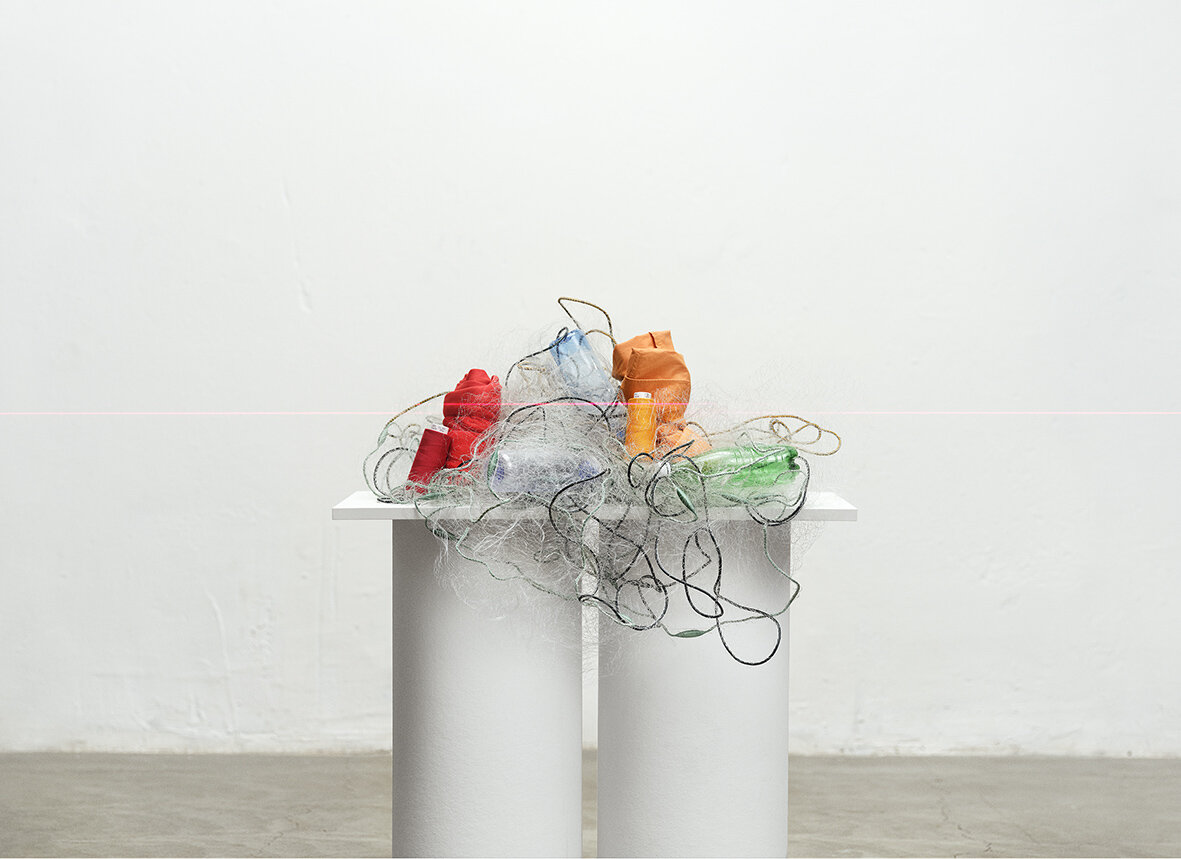Today's Innovations
The effects of climate and ecological breakdown are becoming more apparent by the month. The good news is that the solutions are coming, thick and fast, as some of the world’s most dynamic innovators respond to some of fashion’s biggest impacts with creativity and imagination.
Embracing Radical Transparency
PHOTO CREDIT GLOBAL CHANGE AWARD WINNERS 2020 - TRACING THREADS
Many of the world’s top fashion brands have pledged to using 100 per cent sustainable fibres within the next 10 years. The problem is, less than five per cent can track back to the fibre origins. At the same time, up to 30 per cent of fibres branded as “organic” and “sustainable” are thought to be fake. Enter Tracing Threads by TextileGenesis, one of the winners of H&M’s Global Change Award 2020. The result of intensive “grass-root” discussions with the entire apparel supply chain from fibre producers and fabric mills to retail brands, Textile Genesis offers a blockchain-enabled digital transparency platform that creates radical transparency, from fibre to retail.
Time for a Sea Change
PHOTO CREDIT SEACHANGE TECHNOLOGIES
The textile and fashion industry is responsible for over 20 per cent of global water pollution. Current waste-water treatments take the contaminants and form a toxic sludge, which is either incinerated or dumped into landfills. Through just one simple mechanical process, Zero Sludge by Sea Change Technologies - another winner of H&M’s Global Change Award 2020 - uses one simple mechanical process to separate waste water into clean water and pure mineral solids that can be reused. The interruption to supply chains is minimal; the positive impact on climate and environment - immeasurable.
Beating Plastic Pollution
PHOTO CREDIT CICLO ADDITIVE TECHNOLOGY
Laundry of synthetic textiles - of which polyester is a major player - is the largest source of primary microplastics released into the world’s oceans, and plastics never completely decompose, causing a multitude of problems for marine environments and their inhabitants. Made up of scientists, engineers and textile industry veterans who feel passionately about protecting the planet, Intrinsic Advanced Materials, LLC, has developed a textiles additive called CiCLO® that allows polyester fibres to break down in landfill and the ocean at rates comparable to a natural fibre such as wool.
New Tech for Plant-based Stretch
PHOTO CREDIT CANDIANI & DENHAM
Replicating the stretch and elasticity created in clothing by synthetic, petrol-based elastane yarns has plagued the industry for years - until now. Candiani Denim, already widely regarded as a pioneer in the field, introduces the world’s first biodegradable stretch denim fabric that is plant-based and completely plastic-free. Made from organic cotton wrapped around a natural rubber core, COREVA™ Stretch Technology is a step closer to a truly circular model in which raw materials become fabric, then garment, and then return to nature thanks to their biodegradability. The first brands to use the tech? Dutch denim label DENHAM the Jeanmaker and Stella McCartney.
Tackling the Issue of Dyes and Waste Water
PHOTO CREDIT ECOFAST™ PURE SUSTAINABLE TEXTILE TREATMENT
The World Bank Group has calculated that 17 to 20 per cent of all water pollution comes from textile-dyeing treatments alone. Three new initiatives are seeking to address the waste and misuse of water with innovative responses. Sustainable fibre company Spinnova has teamed up with global chemicals company Kemira to develop a system of dyeing cellulosic fibres before they are extruded into filaments, avoiding excess use of water, energy, heavy metals and other harmful substances associated with dyeing. The award-winning Ecofast by Dow’s applies a textile treatment to cotton before dyeing, making the fibres particularly receptive to bold, bright colours - while reducing the use of water, dye, and energy in the dyeing process. Developed by Tejidos Royo, DryIndigo is the first process to dye indigo without water, completely eliminating waste water discharge - while reducing energy consumption by 65 per cent during manufacture and using 89 per cent less chemical products during manufacture.
The Future is Digital
PHOTO CREDIT LLELA BY THE FABRICANT
In 2018, Norwegian retailer Carlings launched a digital collection to counter the wasteful ‘wear once, take a selfie’ philosophy of today’s frantic online influencer. Now, LLELA by The Fabricant creates a digital platform where users can create Digital Selves, dressing them up in a digital couture collection. All the fun of fashion - without environmental consequences.






